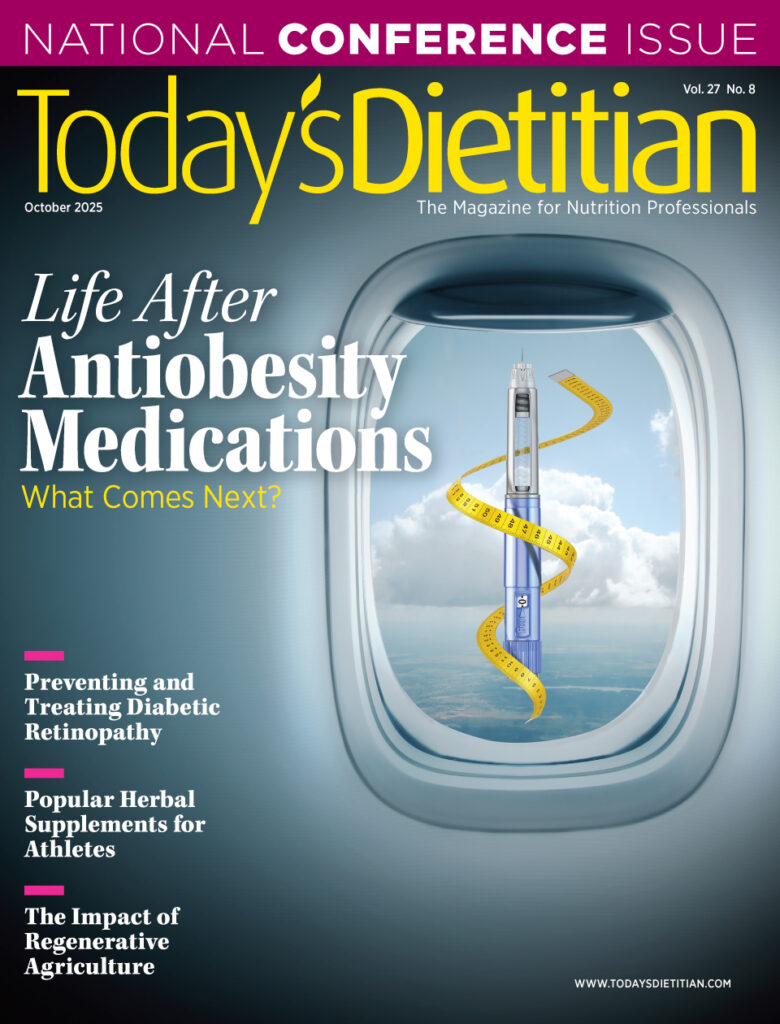For the many men diagnosed with testosterone deficiency, losing weight can help increase testosterone levels. But certain diets—specifically a low-fat diet—may be associated with a small but significant reduction in testosterone, suggests a study published in The Journal of Urology.
“We found that men who adhered to a fat-restrictive diet had lower serum testosterone than men on a nonrestrictive diet,” according to the report by Jake Fantus, MD, of the section of urology in the department of surgery at the University of Chicago Medicine, and colleagues from the department of urology at Northwestern University Feinberg School of Medicine, and the department of surgery at NorthShore University Health System. “However,” the researchers add, “the clinical significance of small differences in serum T across diets is unclear.”
Fantus and colleagues analyzed data on more than 3,100 men from the National Health and Nutrition Examination Survey. All participants had available data on diet and serum testosterone level.
Based on two-day diet history, 14.6% of men met criteria for a low-fat diet, as defined by the American Heart Association (AHA). Another 24.4% of men followed a Mediterranean diet high in fruits, vegetables, and whole grains but low in animal protein and dairy products. Only a few men met criteria for the AHA low-carbohydrate diet, so this group was excluded from the analysis.
The average serum testosterone level was 435.5 ng/dL. Serum testosterone was lower in men on the two restrictive diets—average 411 ng/dL for those on a low-fat diet and 413 ng/dL for those on the Mediterranean diet.
The associations were adjusted for other factors that can affect testosterone, including age, BMI, physical activity, and medical conditions. After adjustment, the low-fat diet was significantly associated with reduced serum testosterone, although the Mediterranean diet wasn’t.
Overall, 26.8% of men had testosterone levels lower than 300 ng/dL. Despite the difference in average testosterone levels, the proportion of men with low testosterone was similar across all diet groups.
Low testosterone is highly prevalent in the United States; approximately 500,000 men are diagnosed with testosterone deficiency each year. Testosterone deficiency can lead to decreased energy and libido, along with physiological alterations, including increased body fat and reduced bone mineral density.
In addition to medications, treatment for low testosterone often includes lifestyle modifications, such as exercise and weight loss. But the effects of diet on testosterone levels have been unclear. Because testosterone is a steroid hormone derived from cholesterol, changes in fat intake could alter testosterone levels. This new analysis of how diet affects serum testosterone provides evidence that a low-fat diet is associated with lower testosterone levels compared with an unrestricted diet.
So, what diet is best for men with testosterone deficiency? The answer remains unknown, according to the authors. In overweight or obese men, the health benefits of a low-fat diet likely far exceed the small reduction in serum testosterone. In contrast, for men who aren’t overweight, avoiding a low-fat diet “may be a reasonable component” of a multifaceted approach to increasing serum testosterone.
Fantus and coauthors note that further studies will be needed to corroborate their findings and to clarify the mechanism by which restrictive diets reduce testosterone. But due to the difficulties of large-scale dietary studies, definitive trials are unlikely to be performed. “Therefore, our data represent a valuable approach towards answering this important question,” the authors conclude.
— Source: Wolters Kluwer Health: Lippincott Williams and Wilkins
Mediterranean Diet May Preserve Transplant Kidney Health
A new study shows that following the Mediterranean diet may help kidney transplant recipients maintain transplant kidney function. The findings appear in the Clinical Journal of the American Society of Nephrology.
Despite improvements in the survival of transplanted kidneys in the early years after transplantation, loss of kidney function within 10 years still occurs in more than one-third of recipients. António Gomes-Neto, MD, of the University of Groningen in the Netherlands, and his colleagues investigated whether adhering to the Mediterranean diet might help protect transplant recipients’ kidney health.
For the study, 632 adult kidney transplant recipients with a functioning donor kidney for at least one year completed a food-related questionnaire, and adherence to the Mediterranean diet was assessed using a nine-point score.
During an average follow-up of 5.2 years, 119 recipients experienced kidney function decline (76 of whom developed kidney failure). The Mediterranean Diet Score was inversely associated with kidney function decline and kidney failure. Each two-point higher score was associated with a 29% lower risk of kidney function decline and a 32% lower risk of kidney failure.
“Increasing scientific evidence has demonstrated health benefits of the Mediterranean diet on cardiovascular and kidney health. In this study, we show that kidney transplant recipients with higher adherence to the Mediterranean diet are less likely to experience function loss of their kidney transplant,” Gomes-Neto says.
— Source: American Society of Nephrology


